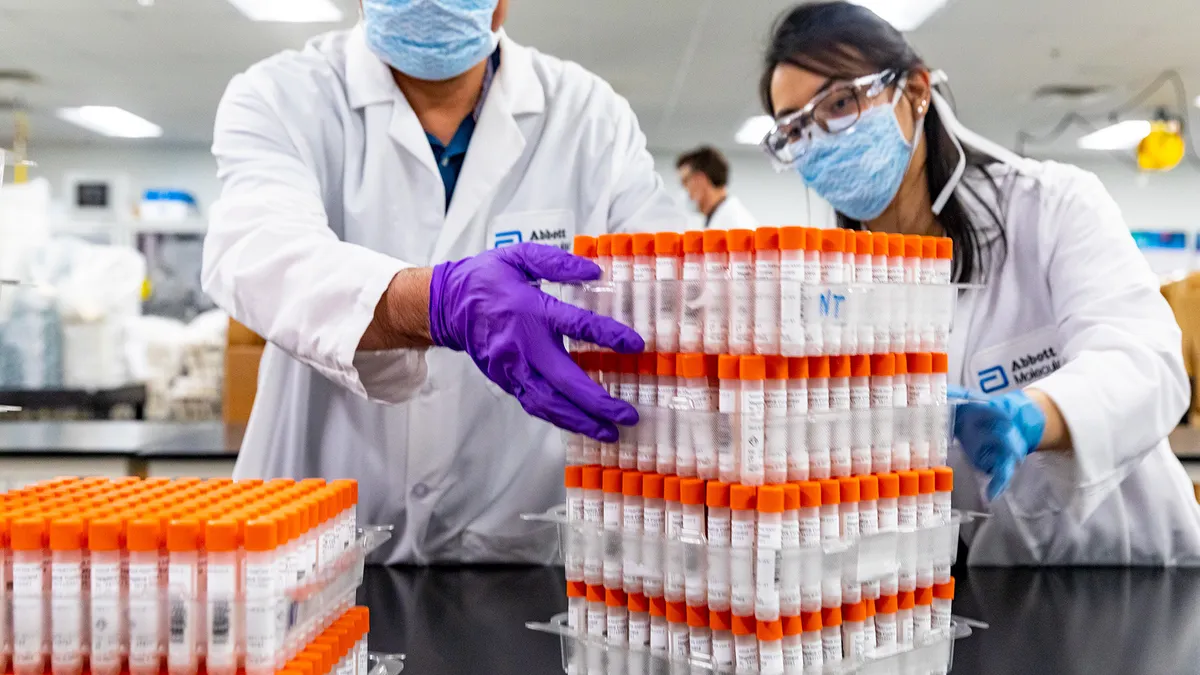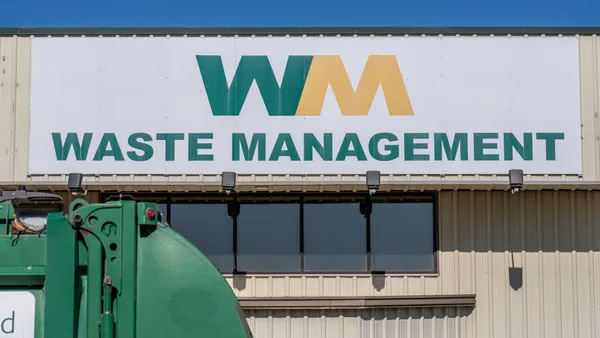Dive Brief:
- Selin Hoboy, a vice president with Stericycle, is urging medical waste companies to monitor fast-changing regulatory guidance for the new coronavirus. Along with Anne Germain, COO for the National Waste & Recycling Association (NWRA), Hoboy is pushing for a uniform response across the industry amid concern about impacts associated with the virus.
- Those comments came during a webinar hosted by NWRA on Thursday meant to clear up confusion. One particular source of concern has been the possibility of infection due to surface contamination, after an early medical study found the virus could linger, especially on plastics and other common MRF materials. But Hoboy said Stericycle would not change practices without new guidance from regulatory agencies.
- Hoboy also cautioned against "overclassification" of MSW as regulated medical waste, which could overwhelm the health care waste industry, while maintaining actual COVID-19 medical waste requires no special treatment. "Health care waste companies that are properly permitted across the country can manage [COVID-19] per normal means," she said.
Dive Insight:
Waste trade groups have been offering members guidance amid growing concerns about the impacts of COVID-19 both from a financial and an operational standpoint. Concerns also persist about worker safety — the International Brotherhood of Teamsters sent letters to CEOs of several companies earlier this week expressing concern about safety and access to sufficient personal protective equipment (PPE).
Groups including NWRA and the Solid Waste Association of North America have told Waste Dive they are taking their cues from the U.S. Centers for Disease Control and Prevention (CDC) and the U.S. Occupational Safety and Health Administration (OSHA). According to guidance from OSHA updated this week, the agency is recommending handling potentially contaminated MSW as if it were non-contaminated MSW, despite scientific findings about the virus lingering on surfaces. From a wastewater treatment perspective, the virus is also considered susceptible to normal disinfectant procedures in wastewater.
For medical waste, meanwhile, the recommended approach is the same as for any other medical material. On Thursday, Hoboy emphasized that advice, suggesting "standard precautions against droplets" and wearing both gloves and eye protection — something that could be challenging, as the general public has been stockpiling PPE. Despite those concerns, Hoboy cited the recommendations as a potential boon to workers already used to the "muscle memory" of such procedures.
Waste volumes associated with COVID-19 have been a source of uncertainty, with several companies declining to speculate to Waste Dive about potential amounts earlier this week. Hoboy offered a preview of what the industry is seeing so far in contrast to past outbreaks.
"We're not seeing a high volume of waste actually generated by the patients themselves... compared to Ebola [for example]," she said.
That outbreak — a Category A situation, indicating high risk of death or injury — involved an uptick in bodily fluids. By contrast, COVID-19 — a Category B scenario — is instead producing "a lot of PPE and solid waste." Much of that is not considered regulated medical waste, although she said some states and local governments are issuing their own differing guidance, without specifying which ones.
While Hoboy advised checking in with local sanitation and health departments, she cautioned about overclassifying MSW as medical waste, potentially burdening the medical waste stream. That is particularly true of quarantine sites like homes where patients with COVID-19 are living, she said. Traditional lab waste relating to COVID-19 can be treated as standard regulated medical waste, including any swabs and sharps.
Despite downplaying volumes associated with COVID-19, Germain noted NWRA has been seeking allowances for the waste industry to allow for flexibility around heavier loads and longer hours.
"[We have made] multiple efforts to reach out to Congress to make sure the waste collection industry is included in any national emergency declaration," she said, confirming NWRA is speaking with "a few congressmen" right now about the issue.
Both advised ongoing attention to shifting guidance as the crisis unfolds. "You can't over-communicate," said Hoboy. "At a time when we can't see each other, we can't touch each other...[communication] is really going to be critical."










